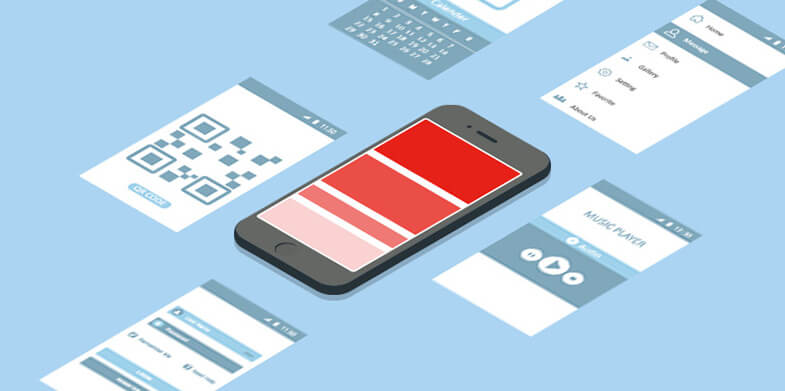iOS or Android? What’s better? Do you know that most of mobile app development companies are focused on both? The thing is that in big countries like the USA And the UK, iOS and Android platforms are used by people in roughly equal numbers.
To create apps for both platforms, mobile developers can choose between the two options: to build two native applications or one cross-platform application suitable for iOS and Android. The objective of this article is to find out if you can use Java to build iOS apps or not?
Technologies for Mobile Development
First, let’s see what technologies are used for creating apps for Apple devices. Traditionally, iOS developers write code using Objective-C or Swift programming language. As a popular toolkit, they usually use Apple Xcode that is suitable for creating apps for both mobiles and desktops. Software development kit for iOS includes API that is an intermediary between an app and an iOS platform.
Java for Android and iOS

And what about Java? Till today, it was used to build Android apps. However, despite its popularity, it is now considered too complex and old for Android. New Android apps are almost built with Kotlin. Among the other technologies used for this purpose are React Native, Angular Material, Firebase, and Figma.
Is it possible to use Java with iOS? Why do developers ask this question if Java is no longer popular even for Android? There are three reasons for that:
- Old Android apps are built in Java. Some customers ask developers to build the same iOS app. In such cases, developers may search for special engines allowing to port Android app and get an iOS app.
- Many Android developers still keep using Java. Some customers ask them is they can create the same app for the iPhone. In such cases, developers might look for cross-platform development for both platforms in Java.
- Those who don’t want to learn Swift to develop iOS apps but know Java.
Answering your question – Yes, actually, it’s possible to build an iOS app with Java. You can find some information about the procedure and even long step-by-step lists of how to do this over the Internet.
What Are the Perspectives?
Recently, the OpenJDK community proposed to provide an opportunity of using Java on iOS. The community plans to restart working on the OpenJDK Mobile project and create APIs and classes for Apple’s platform.
According to the latest news, Java developers wouldn’t need to study Swift or Objective-C to create iOS products. To do this, they can use GraalVM. With specific classes and images, Java developers would be able to build the software following Apple’s rules. While developers are waiting for the new opportunities, let’s see why they actually use Java for mobile development? What are the benefits?
Why Use Java for Mobile Development?

A lot of companies outsource Java development to create web apps, mobile apps, desktop app, and even complex enterprise systems. Today, along with Python Java is one of the leading languages for Big Data projects. It is secure, fast, and good for data science.
To understand why to choose Java for mobile development, let’s see what advantages it has. First off, this programming language is easy to study. Then, it is suitable for both native and cross-platform development. It has a well-developed open-source community. The Java-based products are light which results in better performance.
Among the main disadvantages of the language, we can name the following: compared to some other languages, Java is type-heavy, that’s why you’ll need to write more; Java is slower than some other languages because it needs more memory.
Is It Better to Use Java for iOS Development?
Now, when you know that it’s actually possible to build apps for Apple in Java, you may ask if it is worth it. When I looked for the answers to this question I saw some recommendations from different IT specialists on Quora. Some of them strongly recommend building native products because they have higher performance. Also, such apps can possess as many features as customers want or need. They are more attractive and clear to users.
No matter, what language you are experienced at, you should first know customer’s needs and objectives. This information will help you select the best-suited technology. If you are about to start developing a mobile app, define business goals, target audience, requirements, and features. Once you know that, it will be easy to decide on the best language and toolkit for developing an app.
Looks good, thanks for share